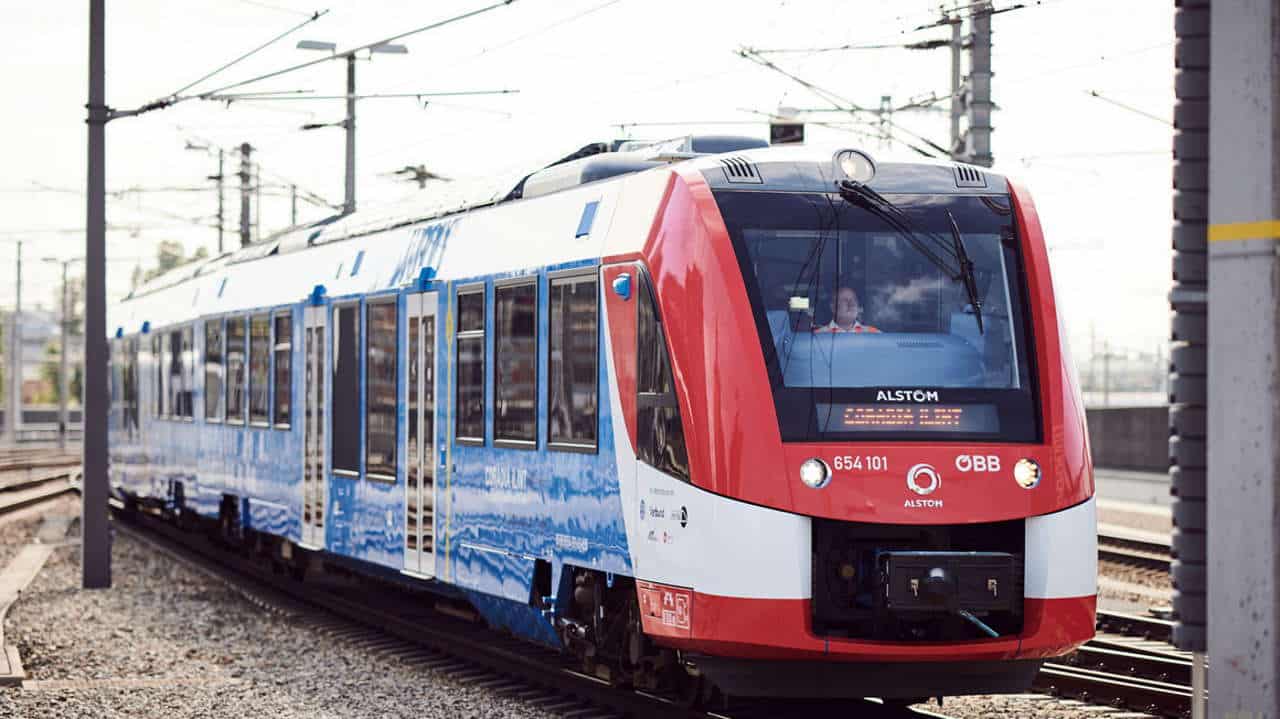Until the end of November, Alstom‘s hydrogen train will run for the first time in passenger service for ÖBB, the Austrian Federal Railways.
The Coradia iLint, built in Germany, uses onboard cells to convert hydrogen and oxygen into electricity, which means that emissions from the train are zero.
Following testing in Northern Germany between 2018 and 2020, the train will now demonstrate how good it is in Austria with over three months carrying passengers on some challenging routes.
“With its use in regular passenger operations for ÖBB, our innovation train Coradia iLint has reached the next milestone,” said Dr. Jörg Nikutta, Alstom’s CEO in Germany and Austria, at the launch event in Vienna. “The train’s emission-free drive technology offers a climate-friendly alternative to conventional diesel trains, especially on non-electrified lines. I am particularly pleased that ÖBB, a strong and long-term partner in the European mobility market, is convinced of our technology and its advantages.”

“We clearly see ourselves as pioneers in testing hydrogen technology on rail. As the largest climate protection company in Austria, we are actively shaping the mobility of the future with technological alternatives,” emphasizes Andreas Matthä, CEO of ÖBB-Holding AG on the occasion of the premiere of the hydrogen train.
The iLint’s success started in 2018 when two trains began operating passenger trains in Lower Saxony in Germany. After 18 months of trials and 180,000 kilometres covered, the path for the delivery of trains will start in 2022.
The iLints which are on test in Austria could replace diesel trains, meaning passengers would be able to look forward to low-noise trains and a top speed of 140 km/h.
Where Next?
RailAdvent Plus
Get image downloads, Prints and Streaming Video
RailAdvent News
The latest railway news
RailAdvent Shop
Railway Prints, DVD’s / Blu-Ray’s and more
LocoStop Community
Come and share your railway pictures
Mainline UK Steam Info
Upcoming mainline steam tours/loco movements
Alstom
Visit their website






Responses